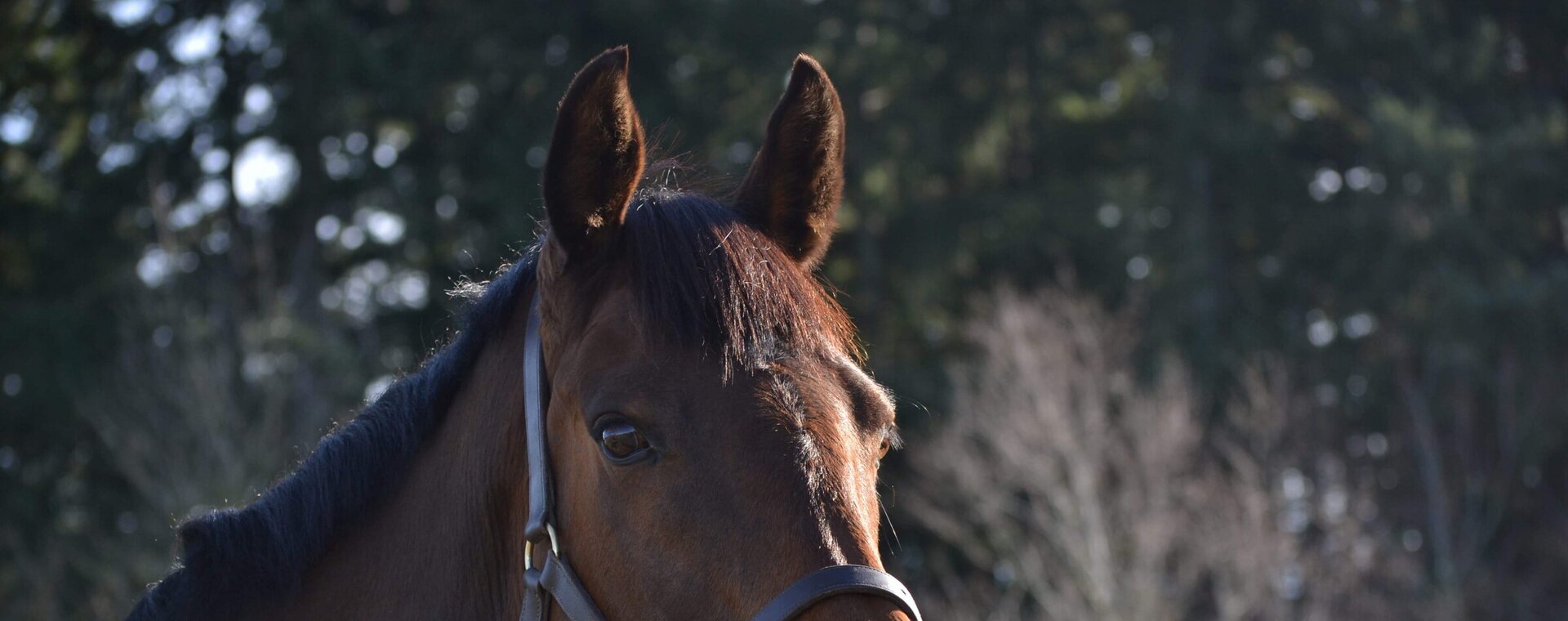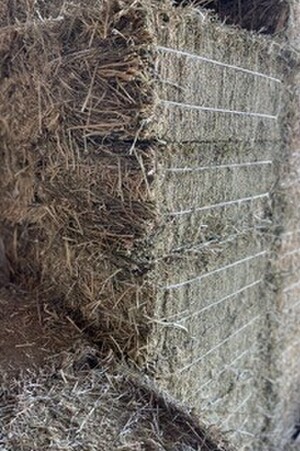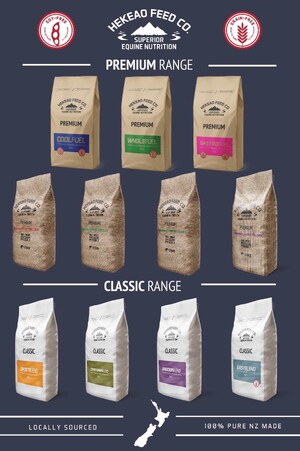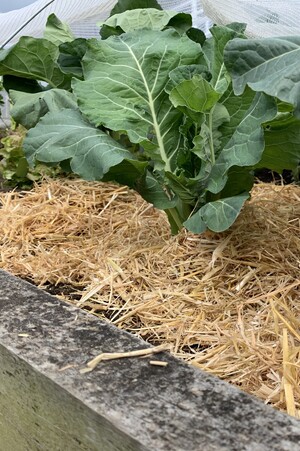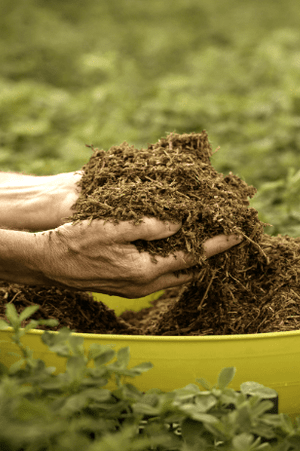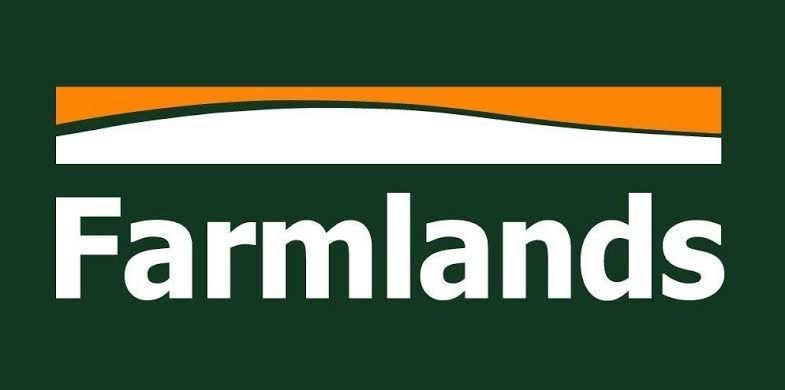Hay, Baleage, Chaff & Horse Feed
Buying your hay, baleage, chaff and hard feed for your horse has never been easier. Simply order at the click of a button and have it delivered right to your door. We have local delivery available in Taranaki and freight options available for the rest of New Zealand - contact us for a quote!
We have options for every equine diet; do you need clover free hay? Rye free? Low sugar hay? Soy free hard feed? Lucerne or red clover hay? We've got the solutions for you.
Explore our range of purpose-grown specialty hay and superior horse feed and equine nutrition products:
Conventional Hay: Meadow
Compressed Hay: Lucerne, Timothy Hay, Meadow, Red Clover, Thrashed Rye, Supreme Horse Mix
Baleage: Lucerne, Horse Mix, Meadow
Chaff: Lucerne, Timothy Hay, Meadow, Forage Fibre
Horse feed: Shop our range of high quality, nutritious feed for your horse from Hekeao Feed Co - these are natural, filler-free and NZ grown horse feed products with grain-free and soy-free options.
What types of hay are suitable for horses?
Horses have specific dietary requirements, and the type of hay you choose can significantly impact their nutrition and health. Several types of hay are suitable for horses, each with its own nutritional profile. Here are some common types of hay that are typically fed to horses:
Timothy Hay: Timothy hay is one of the most popular choices for horses. It is high in fiber, low in protein, and has a moderate energy content. It's an excellent choice for adult horses, easy keepers and those with lower energy requirements.
Lucerne Hay: Lucerne hay also known as Alfalfa hay is higher in protein and energy compared to Timothy hay. It is often fed to young, growing horses, pregnant or lactating mares, and horses in hard work or underweight.
Meadow Hay: Meadow hay is a mix of grasses and may contain a variety of plant species. It can be suitable for many horses and provides a diverse source of nutrients.
Red Clover Hay: Red clover hay is generally nutrient-rich and provides essential vitamins and minerals. It's a good source of protein, fibre, calcium, and other nutrients. It's palatable to horses and can be beneficial for those needing additional protein.
Thrashed Rye Hay: Thrashed Rye Hay is a great source of forage that is low in sugar but high in fibre, making it an ideal option if you need clover-free hay.
Horse Mix Hay: Some horse owners prefer a mix of different grass hays to provide a varied diet. This can help ensure a balance of nutrients and may be beneficial for picky eaters.
What is baleage, and how is it different from hay?
Baleage (also known as "silage") is a method of preserving forage crops that differs from traditional dry hay.
In baleage production:
Harvesting: Fresh forage is cut with slightly higher moisture content than dry hay.
Baling: Chopped forage is densely packed into bales, sealed in plastic and undergoes anaerobic fermentation.
Fermentation: In the absence of oxygen, beneficial bacteria ferment the forage, preserving it and maintaining its nutritional value.
Advantages of baleage for equine nutrition include:
Nutrient Retention: Baleage preserves more nutrients than dry hay.
Digestibility: It's easily digested, ideal for horses with dental issues.
Reduced Dust and Mold: Less risk of respiratory problems due to lower dust and mold.
Consistent Quality: Quality remains stable despite weather conditions.
Year-Round Feeding: Suitable for year-round use.
Less Waste: Reduced spoilage during storage.
If switching from dry hay, transition gradually and ensure proper feeding management to prevent spoilage after opening bales.
What is chaff, and how does it benefit horse nutrition?
Chaff is finely chopped forage mixed with other ingredients like grains, supplements or molasses. It offers these benefits for horses:
Digestibility: Easier to chew and digest, particularly helpful for horses with dental issues.
Nutrient Enhancement: Customisable with grains and supplements for tailored nutrition.
Forage Component: Encourages natural grazing behaviour and aids digestion.
Weight Management: Useful for weight loss or gain by adjusting calorie content.
Hydration: May promote water intake, essential for horse health.
Texture Variety: Adds variety to the diet, preventing boredom.
Preventing Bolting: Encourages slower eating to reduce digestive issues.
Dust Reduction: Typically less dusty than dry hay, reducing respiratory risks.
Choose chaff based on your horse's needs and consult with a veterinarian or nutritionist for a balanced feeding plan. Proper storage is crucial for freshness.
How do you choose the right feed for your horse?
Choosing the right horse feed is crucial for your horse's health and performance. Each horse is unique and therefore nutritional needs can vary from horse to horse. Regular consultations with a veterinarian or equine nutritionist can help you make the best choices for your horse's diet. Here are steps to help you make an informed decision:
Assess Your Horse's Requirements:
Age: Young, growing horses have different nutritional requirements than mature ones. Senior horses may also have specific needs.
Activity Level: Horses in heavy work, competition or training require different energy levels and nutrients than those at rest.
Weight: Consider whether your horse needs to gain, lose, or maintain weight.
Health Conditions: Horses with certain conditions may have dietary restrictions.
Understand Equine Nutrition Basics:
Learn about the essential nutrients horses need, including fibre, fibre, vitamins, minerals and water.
Consider the importance of forage (hay or pasture) in a horse's diet, as it should be the primary source of nutrition.
Read Horse Feed Labels:
Review the feed label for guaranteed analysis, which provides information about protein, fibre, fat and other nutrient content.
Look for horse feeds specifically formulated for your horse's age, activity level and dietary needs.
Consult with an Equine Nutritionist:
If your horse has specific dietary concerns or complex nutritional needs, consider consulting with a professional equine nutritionist for personalised advice.
Evaluate Results and Monitor for Allergies or Sensitivities:
Regularly assess your horse's overall health, coat condition, weight, energy level, and performance. Adjust the diet as needed.
Watch for signs of allergies or sensitivities to specific ingredients in the feed. If observed, consult with a veterinarian.
Order your hay, baleage, chaff and horse feed online and we'll deliver it to your door!
Local delivery in Taranaki: Hay, baleage or feed purchased online is only available for local delivery in Taranaki.
Delivery to rest of New Zealand: If you are outside of Taranaki and wish to have some hay, baleage or feed freighted to you, get in touch and we will get you a quote!
Contact us for a freight quote: info@highfieldsequestrian.co.nz / 027 244 6032 / or message us via Facebook
